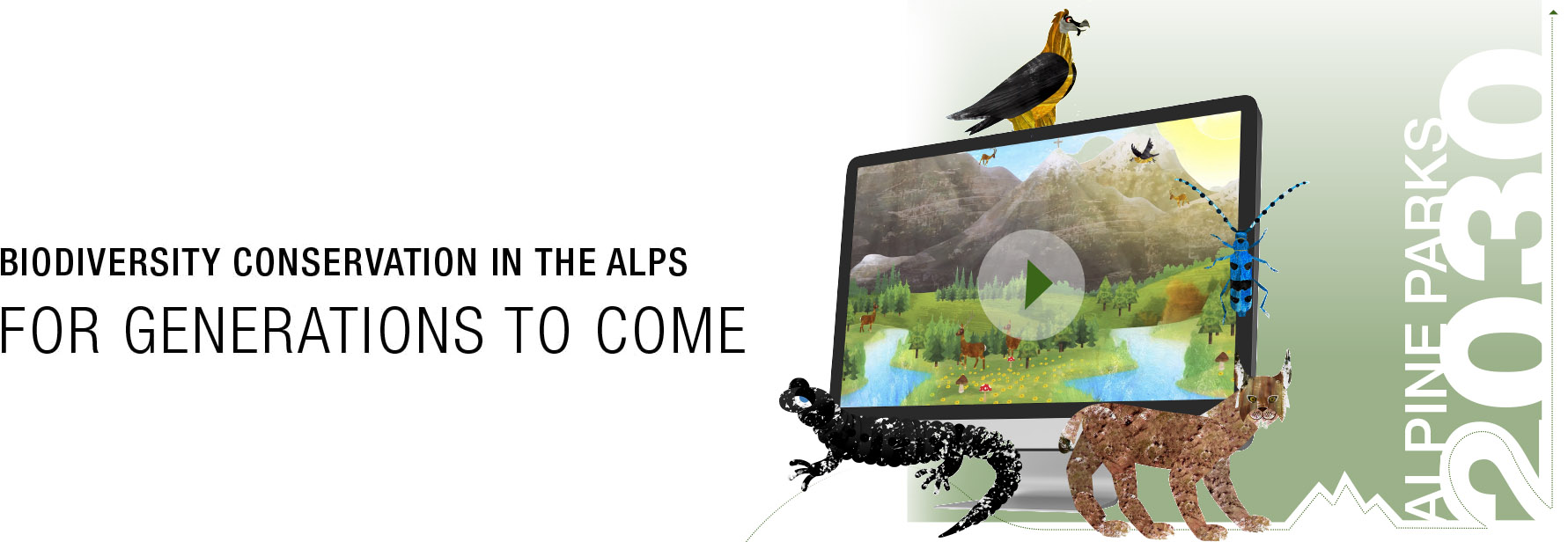
Est. 2005 (officially labelled since 2012 as a Regional Nature Park)
Goals:
To preserve and enhance cultural and natural landscape; to promote sustainable economic development in the region; and, finally, to promote education for sustainable development and raising awareness for environmental protection
Regional environmental challenge(s):
As Switzerland’s largest regional nature park, Parc Ela comprises a very diverse area geographically, where value creation is to be driven and the exit of young people reduced, while maintaining and protecting the natural treasures. Harmonising the different demands of land use and conservation in a changing world (renewable energy, sustainable mobility, climate change, winter and summer tourism to name but a few) is our big challenge for the present and future.
Successes:
3 oasis for insects built;
4.7 km dry stone walls reconstructed;
8 water bodies established and/or rehabilitated;
about 375 ares of hedges, 1700 ares of moorlands and 10360 ares of pasture landscape and forest area maintained;
more than 16 consultations for insect-friendly gardening
and more than 80 excursions with the childrens’ group “Detectivs” lead through
Learn more about Parc Ela's initiatives and projects on their website.
What do you gain from being an ALPARC member?
We definitely gain an international perspective on transborder challenges we all experience at a local level. We highly appreciate the network and its members who contribute to an active Protected Area community at the Alpine level.
What challenges do you see for protected areas in the coming years/decades?
Among the major threats are to be mentioned climate change, biodiversity loss and growing (summer) tourism which is important on an economic level but needs to be guided wisely.
How important do you think protected areas will be in the coming years?
Protected areas are and will be of crucial importance, as these are the regions where biodiversity can thrive. Moreover, they serve as model regions for sustainable development as they implement concrete projects with a measurable impact on the territory.
What is your advice for those interested in future alpine conservation efforts, or those interested in outdoor alpine activities?
Many things have already been said regarding conservation efforts, unfortunately, people need to experience the detrimental effects biodiversity loss causes before truly believing it and change behavior. Hence, it is crucial to form alliances, join specific projects and cooperate for levelling the topic up and increasing its importance at the political agenda. People interested in outdoor alpine activities shall become acquainted with the area, stick to the routes and follow general recommendations such as those of the campaign Be Part of the Mountain. Moreover, the parc staff and local guides might provide guidance in understanding the interdependence between flora and fauna and provide in-depth insights to the ecosystems which are to be explored.
Any final words of wisdom?
It is important to bravely embrace new paths for challenging the major threats to our living environment.
meet our members
“Biodiversity protection on smaller watercourses in the German-speaking Alpine region”
“Biodiversitätsschutz an kleineren Fließgewässern im deutschsprachigen Alpenraum”

To celebrate the first edition of the Climate Hour, we have gathered below a small sample of the actions for climate being led by Protected Areas across the Alps, together with a photo collection featuring the engagement of “Alpine protected areas for climate” !
For the first edition of the Climate Hour, Nature Park Visitor Centers will give away ecological footprint questionnaires to the visitors.
With its long-term ALPARCLIM program launched in 2020, ALPARC wants to publicize campaigns by the parks that serve climate protection and have concrete effects.
The park has integrated the climate emergency as a new transversal objective of the 2022-2031 park charter and obtained the “Cité de l'énergie” label in 2021.
The “Alpin bus” avoids the use of private cars and Ernen is part of the “energieregionGOMS”.
The park takes advantage of the clearly visible consequences of climate change in the cave to raise awareness among the visitors.
The park takes advantage of the clearly visible consequences of climate change in the cave to raise awareness among the visitors.
In 2020 the park started a new cooperation with the Technical University of Munich for a new project on climate change and biodiversity.
France launches the idea of establishing a European network of Alpine Protected Areas.
Organisation of the 1st International Conference of the Alpine Protected Areas in Les Ecrins National Park (FR).
Drafting of the rules for ALPARC's procedural regulations;
Official recognition of ALPARC - The Alpine Network of Protected Areas as a contribution to the application of the Alpine Convention.
Conference of the Protected Areas of the European mountains.
The Steering Committee of the Alpine Convention gives ALPARC the responsibility to carry out a study on ecological networks and transboundary areas.
ALPARC celebrates its 10th anniversary.

ALPARC’s staff becomes attached to the Permanent Secretariat of the Alpine Convention under the name 'Task Force Protected Areas'.
Official partnership between CIPRA, ISCAR and WWF on the Ecological Continuum Initiative.
With the goal of creating a genuine ecological network, ALPARC launches a large-scale project on ecological corridors in collaboration with partner organizations.
Contracting parties of the Alpine Convention, the Carpathian Convention and the Biodiversity Convention sign the Memorandum of Cooperation.
ALPARC coordinates the activities of the Alpine Convention’s Platform 'Ecological Network'.
In January, ALPARC acquires the legal status of ‘association’ in France and separates from the Permanent Secretariat of the Alpine Convention.
In February, ALPARC and the Alpine Convention sign a Memorandum of Cooperation in order to facilitate cooperation between the two organizations and benefit from potential synergies.
20th anniversary!
ALPARC launches the first edition of the international event ‘Youth at the Top’ to help reconnect Alpine youth with nature and their mountain heritage.
ALPARC starts to work on the working field 'Regional Development and Quality of Life' under the framework of the project InnovAlps and WeWild.
ALPARC leads the 3-year EU Alpine Space project ALPBIONET2030 for Alpine wildlife and habitat management and the YOUrALPS project to give structure to the field of Mountain-oriented Education and incorporate the values and knowledge of mountains more fully into practice.
ALPARC becomes a partner of the 2-year EU Alpine Space project GaYA on implementing youth participation in the Alps.
Launch of the communication campaign 'Be Part of the Mountain' to reduce the impact of winter sport practitioners on Alpine fauna.
On April 11th, the new regional platform of the Alpine Network ‘ALPARC CENTR’ALPS’ is officially founded in Nagelfluhkette Nature Park (Balderschwang, DE) to ensure a regional presence and proximity of the network.
ALPARC celebrates its 25th anniversary in Le Monêtier-les-Bains, Les Ecrins National Park.
Together with 5 partners within the project OpenSpaceAlps and with 10 partners within the HEALPS2 project, ALPARC and the project partners have successfully completed these Alpine Space projects.
The regional platform ALPARC CENTR'ALPS is present with a contact point with its own staff in Immenstadt (DE).
Alpine Space project ‘PlanToConnect’ (project builds on the results of ALPBIONET2030). Objective: Integration of ecological connectivity into spatial planning in the Alpine region.
Launch of two Alpine Space projects: ‘LiveAlpsNature’ (ALPARC LeadPartner). Objective: Visitor guidance measures for Alpine protected areas through innovative offers (OneHealthApproach) and modern digital platforms for outdoor activities. ‘AlpsLife’ (ALPARC, central project partner). Objective: Provision of methods for joint biodiversity monitoring and an Alpine early warning system for species and habitat loss.
30 years of international cooperation of Alpine protected areas within the network ALPARC.